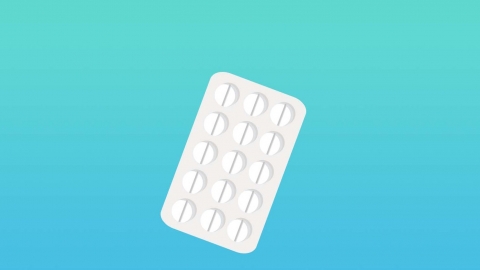What are the efficacy, uses, and side effects of Glimepiride tablets?
Generally, the efficacy and functions of Glimepiride tablets include promoting insulin secretion, enhancing insulin sensitivity, reducing insulin dosage, lowering cardiovascular risks, and regulating blood lipids. Its side effects may include hypoglycemia, gastrointestinal discomfort, skin allergies, abnormal liver function, and edema. Detailed explanations are as follows:

I. Efficacy and Functions
1. Promoting Insulin Secretion
Glimepiride primarily acts on pancreatic β cells. After binding to specific receptors, it stimulates pancreatic β cells to release insulin, thereby increasing insulin levels in the blood and helping to lower blood glucose.
2. Enhancing Insulin Sensitivity
Glimepiride improves the sensitivity of peripheral tissues to insulin, allowing body cells to utilize glucose in the blood more effectively, increasing glucose uptake and utilization, further lowering blood glucose levels.
3. Reducing Insulin Dosage
For diabetic patients requiring insulin therapy, Glimepiride tablets can help reduce the required insulin dosage, thereby decreasing the frequency and dose of insulin injections.
4. Lowering Cardiovascular Risk
Glimepiride offers certain protective effects on the cardiovascular system, reducing the risk of cardiovascular events in diabetic patients, which is related to its ability to improve glycemic control and lower blood pressure.
5. Regulating Blood Lipids
Glimepiride has lipid-regulating effects, capable of lowering cholesterol and triglyceride levels in the blood, helping to improve lipid abnormalities in diabetic patients, thus reducing the risk of complications.
II. Side Effects
1. Hypoglycemia
Glimepiride lowers blood glucose by stimulating pancreatic β cells to secrete insulin. When the dosage exceeds the body's ability to regulate blood glucose, or if the patient misses a meal, consumes insufficient food, or suddenly increases physical activity, leading to increased glucose consumption while insulin continues to exert its glucose-lowering effect, hypoglycemia may occur.
2. Gastrointestinal Discomfort
After entering the gastrointestinal tract, the medication may directly irritate the mucous membranes, interfere with normal gastrointestinal motility and secretion of digestive fluids. It may also affect the neural regulation of the gastrointestinal tract, causing smooth muscle spasms, leading to symptoms such as nausea, vomiting, diarrhea, abdominal pain, and bloating, which can affect digestion and nutrient absorption.
3. Skin Allergy
In some individuals, the immune system identifies certain components of Glimepiride as foreign antigens, triggering an immune response. The immune system produces antibodies and releases inflammatory mediators like histamine, which cause vasodilation and increased vascular permeability, leading to symptoms such as itching, erythema, and urticaria.
4. Abnormal Liver Function
Glimepiride is mainly metabolized in the liver, and the drug and its metabolites may cause some damage to liver cells. This may interfere with normal metabolic processes within liver cells, affecting the liver's detoxification and synthesis functions, thereby causing elevated liver function indicators.
5. Edema
Glimepiride may affect the kidneys' excretion of sodium and water and may also increase sodium reabsorption in renal tubules, leading to sodium and water retention in the body, which causes an increase in interstitial fluid, resulting in edema, commonly seen in the lower limbs, ankles, and other areas.
During the use of Glimepiride tablets, meals should be taken strictly at regular times and in appropriate quantities. Alcohol consumption on an empty stomach should be avoided because alcohol can interfere with glucose metabolism in the liver, increasing the risk of hypoglycemia.








